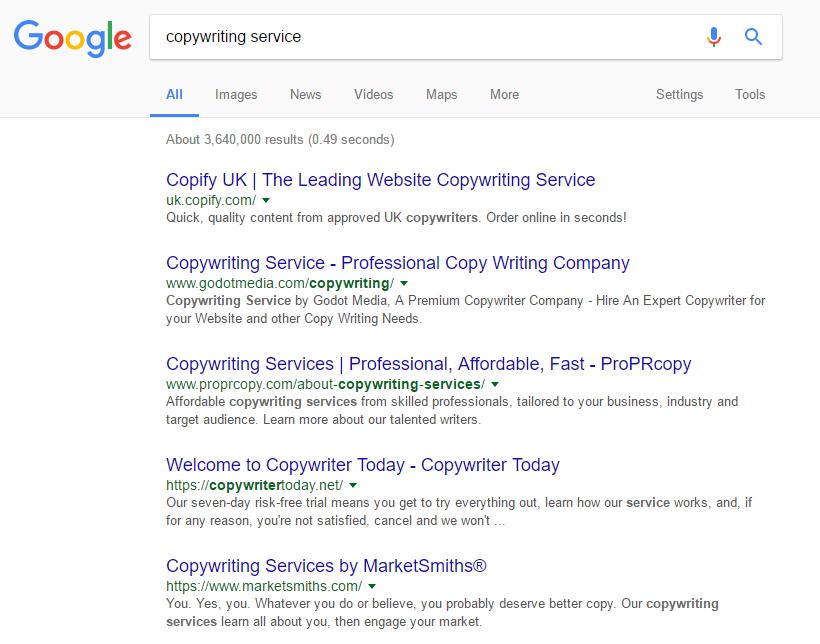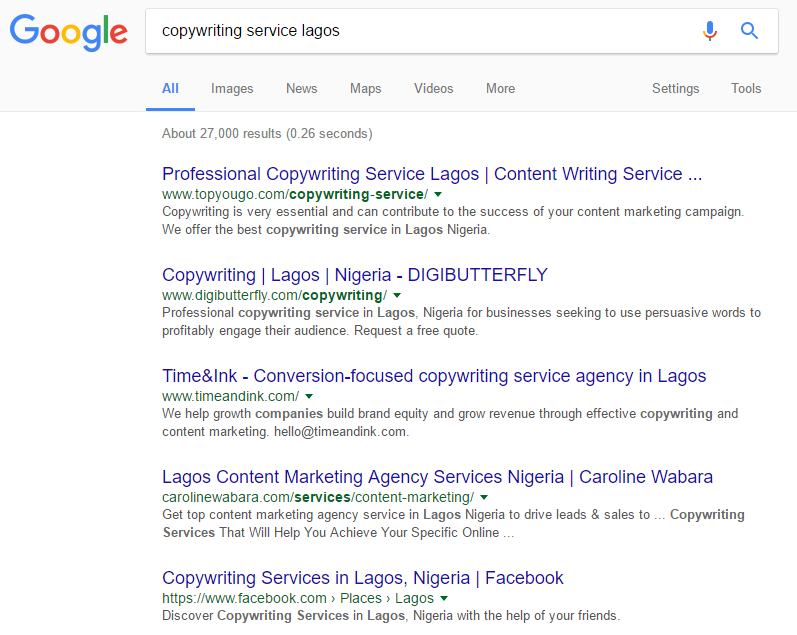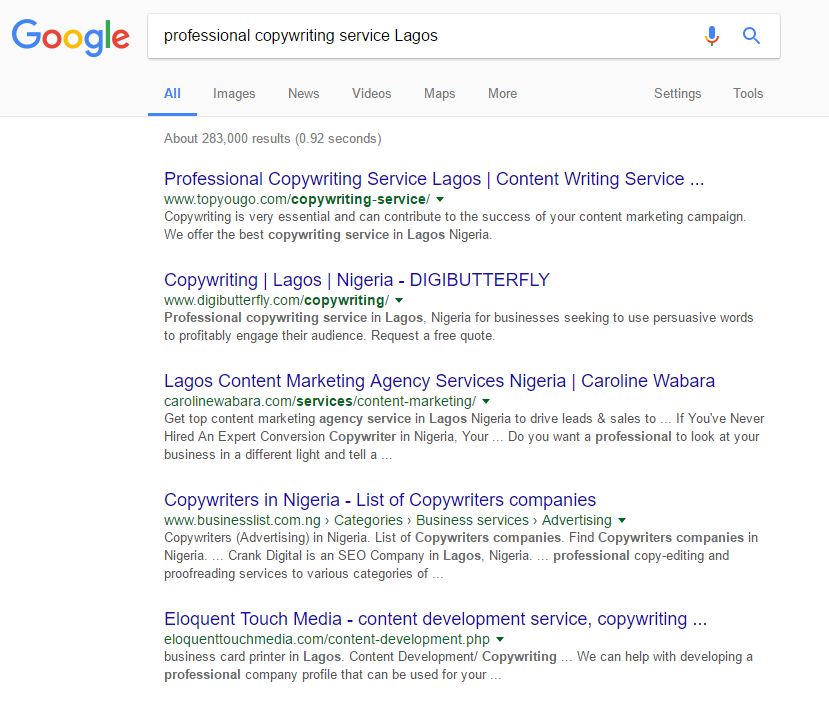The importance of keyword research cannot be over-emphasized in search engine optimization (SEO) and marketing. A keyword research analysis makes it possible to get high ranks on search engine result page against all odds and amidst tough competitions. So the questions that pops into our minds are ‘what are the best practices for carrying out a keyword research and analysis?’ and ‘what are the benefits of top ranking of keywords on search engine?’ The benefits are indeed enormous! The benefits lie in the objective of creating a website or blog in the first place; to be heard, to be seen and to be found, and in some most cases, to generate revenue online. So how do you get seen or heard or found?
Top Search Engines such as Google and Bing offer a means to generate targeted traffic through the use of keywords. Hence the reason why you want the best keywords matching your contents, web pages, and businesses. Keywords can be likened to titling a textbook. The title of a textbook tells what the book is all about at a first glance, and in a nutshell. When readers look for a particular book amongst other books in a library shelf, the title guides the reader in making the right choice. A wrongly titled book would attract the wrong readers, just as it is with keywords, hence the reason why keywords are so much of importance in internet marketing.
Considering the analogy used above, a keyword can be defined as a word or phrase (consisting of more than one words) that describes the content of a post, article or web page, while keyword research analysis is the process of closely examining each keywords against several factors such as keyword complexity, difficulty and density, conversion rate, search volumes and demand. Webmasters have made it possible to be able to track keywords typed into search engines by visitors, which is often available to SEO experts when performing a keyword research analysis, alongside several other keyword research tools. A common starting point for SEO keyword research is the Google Keyword Planner tool which advises on estimated keyword search volume as well as the cost of AdWords Campaign for these keywords, which is determined by the profitability and competitiveness of such keywords. Another similar tool to consider is Bing Ads Intelligence tool.
It is also worth mentioning that the number of words in your keywords will hugely determine your success. Long tail keywords (that is, keywords with more than 3 words) are unique searches which are more targeted. Long tail keywords generally provide a better conversion rate, which gives value for money. In today’s world, short tail keywords (that is, keywords with 1 to 3 words) is quietly facing out as it has a lower conversion rate and are generally less searched. A good keyword research analysis will help you to choose the most profitable and high demand keywords which can equally rank high on Search Engines easily, with the right measures put in place. It also allows you to proactively respond to market demands and provide contents, products or services that web users are actively searching for.
Without deviating too much from the initial question “what are the best practices for carrying out a keyword research and analysis in SEO marketing?”, here are some guidelines:
- a) Know your competitors! Have a good list of relevant keywords used by your successful competitors. Start with these lists.
For the purpose of this article, let’s assume a main competitor’s keyword for a service provided is “copywriting service”. Please note that using keywords in quote provides exact match in the results provided by the search engine, but in our case, it won’t be required.
In the image below, Google search result for keyword “copywriting service” shows over 3 million results. This is huge! It will take a lot of effort and Website SEO Auditing to beat the websites in the Top 10 as seen in the image below.

- b) If you targeting a particular niche, location or country e.g. students, children, men, women, Lagos, Nigeria, London, Qatar, Chicago, Canada etc., it’s best to add it to your keyword so you streamline the result to your interest. Local SEO comes in handy for location specific keywords.
Let’s make the keyword more targeted by adding Lagos to the keyword, that is, “copywriting service Lagos”.

From the above image, Google search result for keyword “copywriting service Lagos” shows 27,000 results, which obviously looks more promising and achievable.
- c) What adjectives best describe your web page? If necessary, use adjectives such as cheap, good, best, buy, quality, affordable, professional, premium, free, tips, top, discount or anyone particular to your niche.
Think about how else the search result can be narrowed down so as to lessen competitions? Looking at image 2 above, the top competitor added more keyword variation using “Professional”.
Google search result for keyword “professional copywriting service Lagos” shows 283,000 results which seems like a good long-tail keyword with more search results, and could easily get top ranked for both “copywriting service Lagos” and “professional copywriting service Lagos” keywords on Search engines.

- d) What other similar words (synonyms) could your visitors possibly use in place of your keywords? In our example, “copywriting service” could also be regarded as “content writing service” by searchers online. All these variations can be used to form a long list of keywords.
Other possible long tail keywords that can be used in our example are: best copywriting service, quality copywriting service in Nigeria, etc.
- When you form you own possible list of keywords, use Google Keyword Planner tool and/or Bing Ads Intelligence Keyword tool to check the search volume and profitability of the keywords.
- After selecting your final keywords, put them in the right places without stuffing your web content or page with too many keywords. Your keywords should appear in your Meta Title, Meta Description, Meta keywords and severally in the body of your text, but most importantly, in the first sentence or paragraph. Best practice is to use your keywords once per 100 words of text.
Researched keywords are more effectual if the above best practices are followed. If ever in doubt, you can hire an experienced SEO analyst to perform this task for you. It is worth spending the extra quid to lay a good foundation, than playing a guessing game with your online success. Furthermore, it is worth knowing what Google thinks of the use of keywords in meta tags.
Lastly, the best keyword is the one with a lot of monthly search volumes, but yet not so competitive, and can also be easily ranked at the top of search engine result page.


